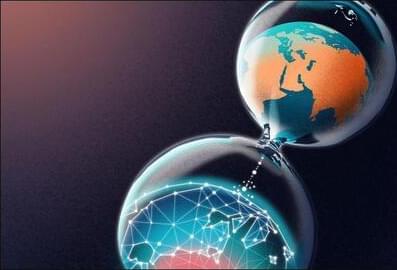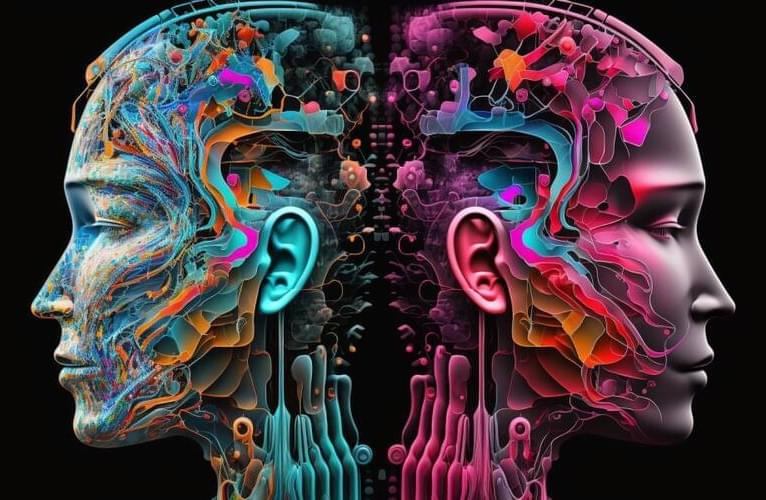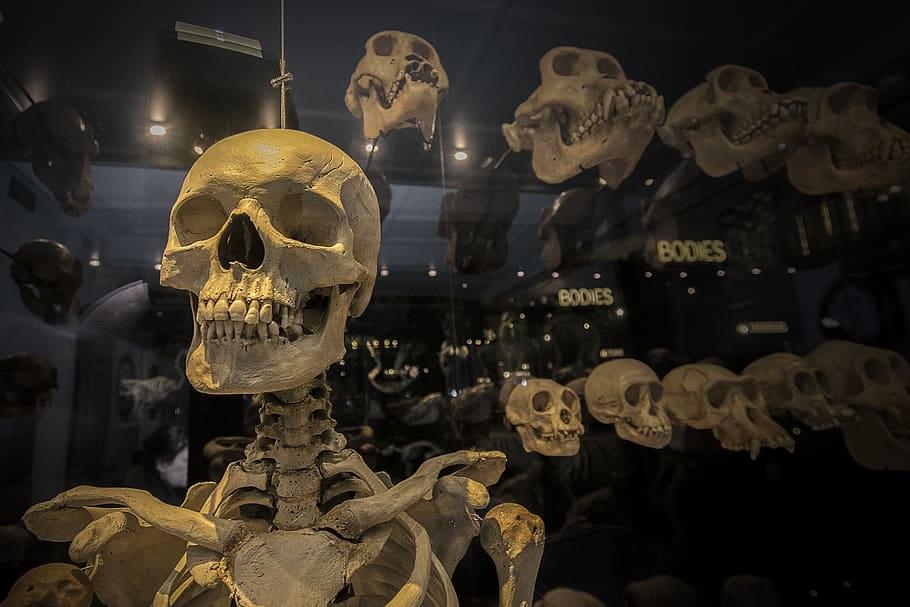Search results for 'yuval harari': Page 3
May 25, 2024
Managing extreme AI risks amid rapid progress
Posted by Dan Breeden in categories: governance, robotics/AI
Preparation requires technical research and development, as well as adaptive, proactive governance.
Yoshua Bengio, Geoffrey Hinton, […], Andrew Yao, Dawn Song, […], Pieter Abbeel, Trevor Darrell, Yuval Noah Harari, Ya-Qin Zhang, Lan Xue, […], Shai Shalev-Shwartz, Gillian Hadfield, Jeff Clune, Tegan Maharaj, Frank Hutter, Atılım Güneş Baydin, Sheila McIlraith, Qiqi Gao, Ashwin Acharya, David Krueger, Anca Dragan, Philip Torr, Stuart Russell, Daniel Kahneman, Jan Brauner [email protected], and Sören Mindermann +22 authors +20 authors +15 authors fewer Authors Info & Affiliations
Science.
Apr 7, 2024
GPT-4 is 82% more persuasive than humans, and AIs can now read emotions
Posted by Genevieve Klien in category: robotics/AI
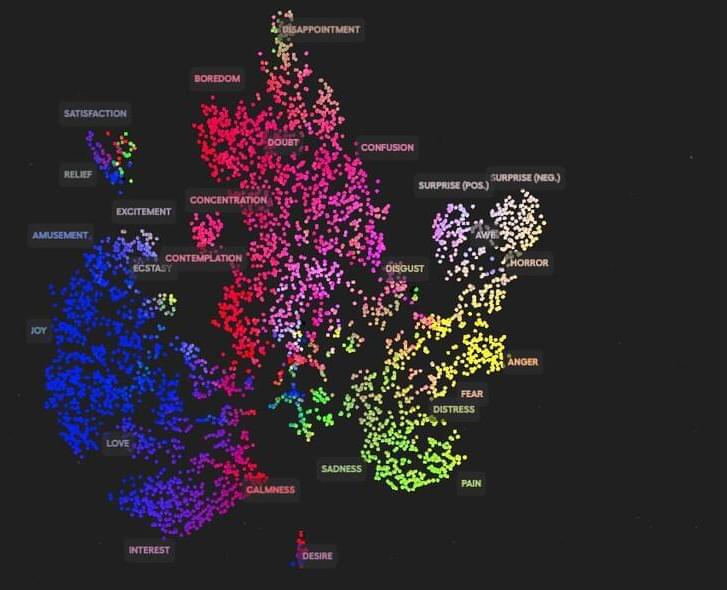
GPT-4 is already better at changing people’s minds than the average human is, according to new research. The gap widens the more it knows about us – and once it can see us in real time, AI seems likely to become an unprecedented persuasion machine.
We don’t tend to like thinking of ourselves as being particularly easy to manipulate, but history would appear to show that there are few things more powerful than the ability to sway people to align with your view of things. As Yuval Noah Harari points out in Sapiens, his potted history of humankind, “shared fictions” like money, religion, nation states, laws and social norms form the fundamental backbones of human society. The ability to assemble around ideas and co-operate in groups much bigger than our local tribes is one of our most potent advantages over the animal kingdom.
Continue reading “GPT-4 is 82% more persuasive than humans, and AIs can now read emotions” »
Jun 6, 2023
Artificial Intelligence, Democracy, & the Future of Civilization
Posted by Kelvin Dafiaghor in categories: futurism, robotics/AI
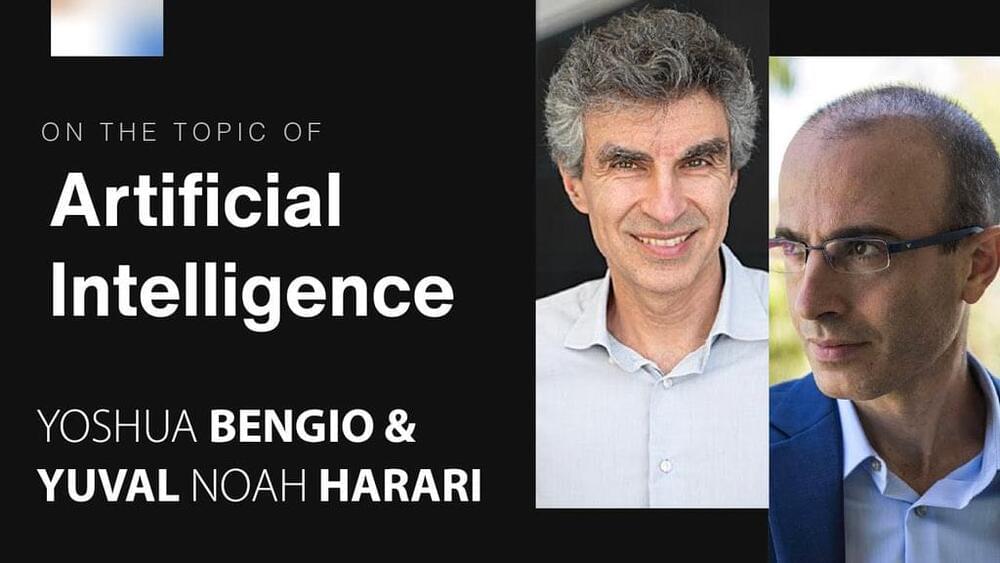
What does the future of Artificial Intelligence (AI) look like and how will it impact democracy and society?
This question was explored by Prof. Yoshua Bengio, pioneer AI developer and Turing Award winner, and Prof. Yuval Noah Harari, bestselling author and historian – in a live discussion moderated by political journalist Vassy Kapelos.
Continue reading “Artificial Intelligence, Democracy, & the Future of Civilization” »
May 20, 2023
AI and the future of humanity
Posted by Kelvin Dafiaghor in categories: futurism, robotics/AI
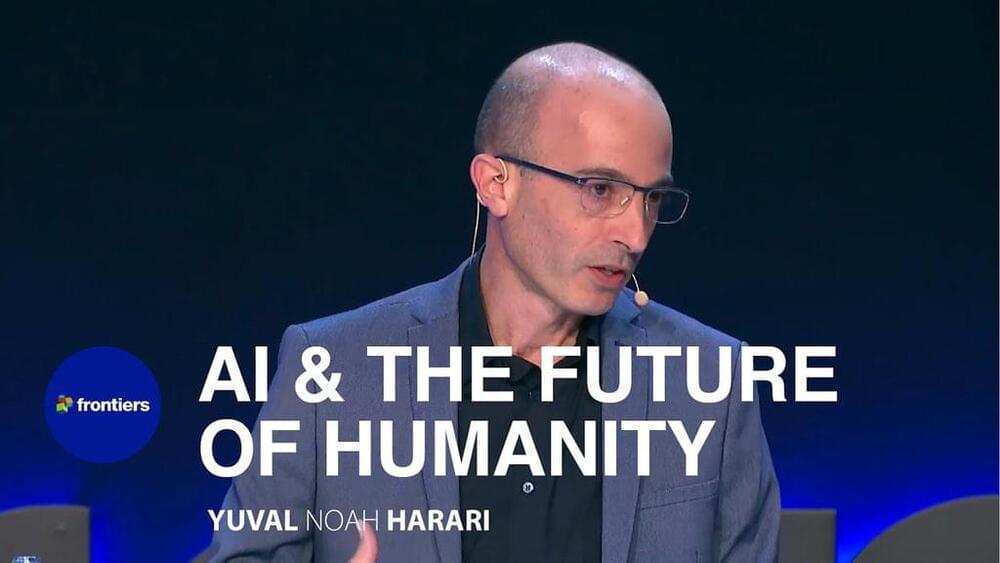
In this keynote and Q&A, Yuval Noah Harari summarizes and speculates on ‘AI and the future of humanity’.
There are a number of questions related to this discussion, including:
Apr 24, 2023
How hybrid AI could enhance GPT-4 and GPT-5 and address LLM concerns
Posted by Genevieve Klien in categories: Elon Musk, robotics/AI
Join top executives in San Francisco on July 11–12, to hear how leaders are integrating and optimizing AI investments for success. Learn More
The explosion of new generative AI products and capabilities over the last several months — from ChatGPT to Bard and the many variations from others based on large language models (LLMs) — has driven an overheated hype cycle. In turn, this situation has led to a similarly expansive and passionate discussion about needed AI regulation.
The AI regulation firestorm was ignited by the Future of Life Institute open letter, now signed by thousands of AI researchers and concerned others. Some of the notable signees include Apple cofounder Steve Wozniak, SpaceX, Tesla and Twitter CEO Elon Musk; Stability AI CEO Emad Mostaque; Sapiens author Yuval Noah Harari; and Yoshua Bengio, founder of AI research institute Mila.
Dec 26, 2022
Neuralink 2022 Show and Tell Condensed
Posted by Kelvin Dafiaghor in categories: computing, neuroscience
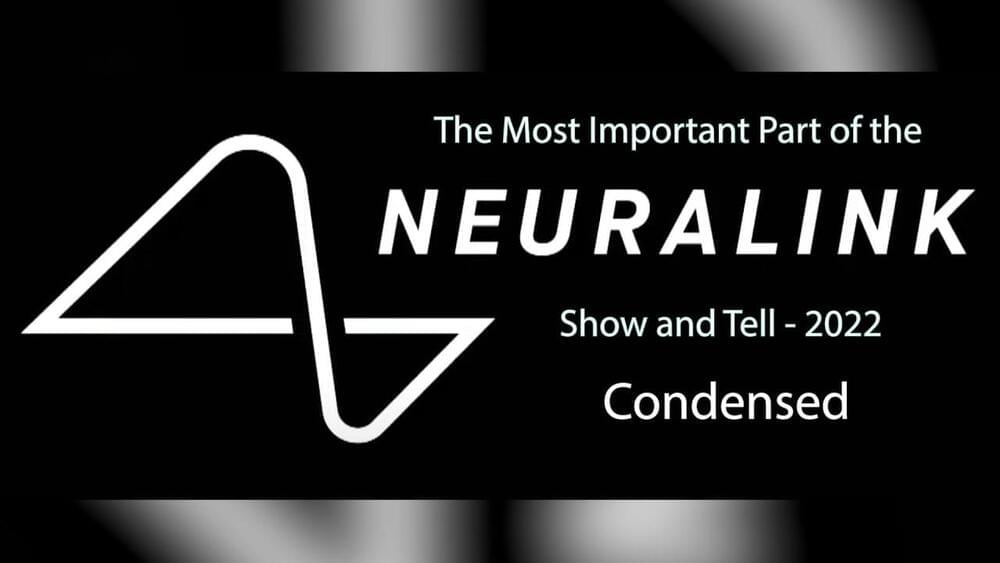
I wanted to focus on the animal testing portion of the Show and Tell. Neuralink representatives showed us videos of a pig that has a cortex and spinal chip in its body. It also has pin points on joints in its leg that are sending data to the Neuralink scientist. When the scientist stimulates a joint it creates an uncontrolled movement. The pig moves its leg without wanting too, but because someone else wanted it too, the pig did not want to move. That’s the focus of this video.
#neuralink #neuroscience #videoessay #yuvalnoahharari #elonmusk #podcast #neurology
Mar 18, 2022
Future evolution: from looks to brains and personality, how will humans change in the next 10,000 years?
Posted by Genevieve Klien in categories: biotech/medical, computing, food, genetics, information science, mobile phones, neuroscience
And going forward, we’ll do this with far more knowledge of what we’re doing, and more control over the genes of our progeny. We can already screen ourselves and embryos for genetic diseases. We could potentially choose embryos for desirable genes, as we do with crops. Direct editing of the DNA of a human embryo has been proven to be possible — but seems morally abhorrent, effectively turning children into subjects of medical experimentation. And yet, if such technologies were proven safe, I could imagine a future where you’d be a bad parent not to give your children the best genes possible.
Computers also provide an entirely new selective pressure. As more and more matches are made on smartphones, we are delegating decisions about what the next generation looks like to computer algorithms, who recommend our potential matches. Digital code now helps choose what genetic code passed on to future generations, just like it shapes what you stream or buy online. This might sound like dark science fiction, but it’s already happening. Our genes are being curated by computer, just like our playlists. It’s hard to know where this leads, but I wonder if it’s entirely wise to turn over the future of our species to iPhones, the internet and the companies behind them.
Discussions of human evolution are usually backward looking, as if the greatest triumphs and challenges were in the distant past. But as technology and culture enter a period of accelerating change, our genes will too. Arguably, the most interesting parts of evolution aren’t life’s origins, dinosaurs, or Neanderthals, but what’s happening right now, our present – and our future.
Nov 13, 2021
With the Metaverse on the way, an AI Bill of Rights is urgent
Posted by Gemechu Taye in categories: information science, internet, robotics/AI, security, sustainability

AI is a classic double-edged sword in much the same way as other major technologies have been since the start of the Industrial Revolution. Burning carbon drives the industrial world but leads to global warming. Nuclear fission provides cheap and abundant electricity though could be used to destroy us. The Internet boosts commerce and provides ready access to nearly infinite amounts of useful information, yet also offers an easy path for misinformation that undermines trust and threatens democracy. AI finds patterns in enormous and complex datasets to solve problems that people cannot, though it often reinforces inherent biases and is being used to build weapons where life and death decisions could be automated. The danger associated with this dichotomy is best described by sociobiologist E.O. Wilson at a Harvard debate, where he said “The real problem of humanity is the following: We have paleolithic emotions; medieval institutions; and God-like technology.”
Full Story:
Continue reading “With the Metaverse on the way, an AI Bill of Rights is urgent” »
Nov 4, 2021
Elon Musk shares meme of Judge Dredd saying ‘You have been judged’ after Blue Origin loses NASA lawsuit over SpaceX contract
Posted by Kelvin Dafiaghor in categories: cybercrime/malcode, Elon Musk, robotics/AI, space travel
World-renowned science author Yuval Noah Harari said that someday human brains could be hacked into if emerging AI systems are not properly regulated.

